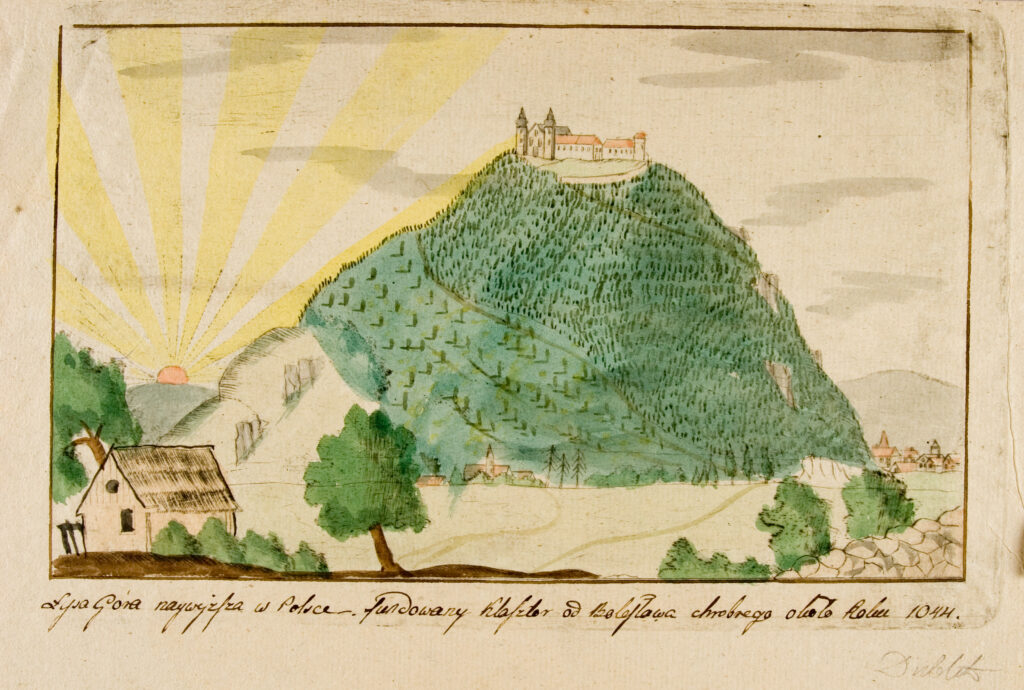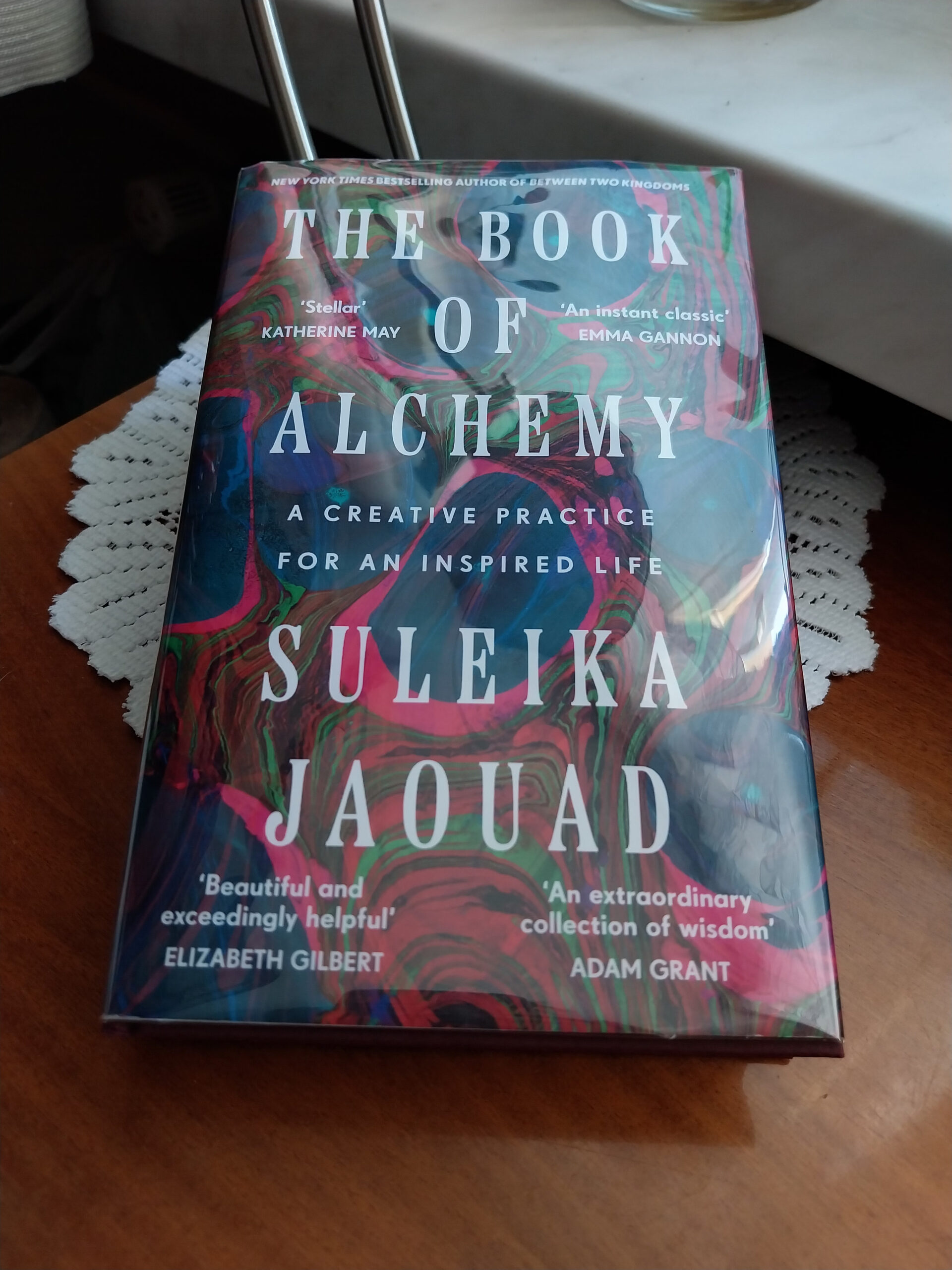Creating Alchemy and Suleika Jaouad
One of my all-time favorite memoirs is Between Two Kingdoms: A Memoir of a Life Interrupted, by Suleika Jaouad. In it the American author chronicles her life before and after an initial cancer diagnosis with a rare form of leukemia. From that book I found her on Substack where she writes The Isolation Journals. I’m also a huge fan of journaling, so when I heard about her new book, The Book of Alchemy: A Creative Practice for an Inspired Life, I jumped on it as fast as possible (which meant it took somewhat longer for me to get it in Europe than in the U.S.), so I could try my hand at creating alchemy.
Benefits of Journaling
Before I get into my own journaling experience, I wanted to pass on some information about the benefits of journaling, since while you might agree that it can help you as a creative outlet, you may not know that studies have shown that it also has actual health benefits. One study published in JMIR Mental Health in June 2018 demonstrated clinical benefits related to lowering anxiety levels, while also citing other studies that have shown benefits across a wider range of people and conditions (for instance, those with autoimmune issues). Think lowering blood pressure, anxiety, and improving overall outlook.
A more subjective example comes from Yiyun Li, author of the devastating Things in Merely Nature Grow, which I mentioned in this month’s newsletter. After her own suicide attempt, Li talks about how both reading and writing helped her. “In the hospital, the pen and the notebook were my habitat” and “writing, too [along with reading], offers the approximation of salvation.” Salvation in any context is high praise, but in her case reading and writing have truly saved her life.
Long-time Fan of Journaling
I’m a long-time fan of journaling. I wouldn’t say I always kept a diary as a child, but I did write here and there. Maybe I write more than I remember, too, but I don’t have stacks and stacks of journals sitting around. I became a big Morning Pages convert when a friend and fellow writer introduced me to Julia Cameron’s The Artist’s Way: A Spiritual Path to Higher Creativity. This book is close to celebrating its 35th anniversary, and has sold millions of copies. (As a side note, I dare you to try her one-week media fast. I’m not even sure I could do it anymore, with phones such an omnipresence in our lives.)
My own approach to journaling can probably be summed up thusly: inconsistent, in that I journal most days, but often don’t; always handwritten, but then transferred to a saved document; quite frequently “impermanent,” because I tend not to keep the actual pages I write on, a la Michael Bible; and while I wouldn’t say I’ve ever had an epiphany, it has always made me feel better.
Don’t Worry About…
Below I offer a few pointers if you’re new to journaling, things that I think will be helpful. And if you’re already into journaling, maybe this advice will remind you that it’s better if you don’t worry about…
Time Spent
Don’t worry about the time spent on journaling. I think people put a lot of stress on themselves to write a certain number of words or pages, or for a certain amount of time, which will only set you up for failure. Just open your notebook and write something, even if it’s only one word. It all counts.
In Elif Shafak’s beautiful There Are Rivers in the Sky, one of the main characters, Arthur, wants to study the cuneiform on the Epic of Gilgamesh clay tablet at the British Museum. Between working, walking to the Museum during his lunch hour, and getting to his spot in front of the tablet, he is left with barely any time to look at the carved symbols before he has to rush back to work. As he says, “This leaves him with fourteen minutes to spare. It is not much, but it is not nothing.” And that’s important. It’s not much, but it’s not nothing.
Someone Else Reading It
I was so sad to read in Jessica Simpson’s Memoir, Open Book, that for a long time she agonized over someone reading her journals and finding them full of spelling and grammar mistakes. I would say don’t worry about it. I’ve seen draft versions of songs I love, for example, full of grammar and spelling mistakes by musicians I admire a lot. They don’t let those things get in the way of their creative alchemy, neither did Simpson, and neither should you!
Being Too Precious
I often look on with wonder (and envy) at some of the beautiful journals I’ve seen people make. They’re works of art, and creating them is itself creating alchemy. How many times have you seen someone’s handmade journal with watercolor sketches they’ve done just as decoration for their journal? Or bullet journals that make you want to plan out your life like nobody’s business? Again, though, don’t worry about being too precious. If you love creating your journals, great! But maybe also ask yourself if creating the journal is an excuse not to actually use it (and if that’s true, then that’s okay, too, but it’s good to be aware of this).
Ten Sections, with Ten Prompts Each
Jaouad’s book uses a simple format. In addition to an introduction and afterword, written by Jaouad, are ten sections, with ten prompts each. She introduces each section, too. At first I was afraid she had only written the introduction and afterword, but, no, she uses the beginning of each chapter to talk about that section as it relates to her personally. Examples of sections include “On Beginning,” “On Fear,” “On Rebuilding,” and “On Alchemy.”
Each prompt is written by a different contributor. Contributors range from lesser-known writers and artists to giants of the literary world and elsewhere. They run the gamut of creative alchemy. We’re talking people like George Saunders, Lena Dunham, Salman Rushdie…Mavis Staples! I think there’s something — and somebody — in here for everyone. And I also think that the book is a huge springboard into learning about all of those other creative alchemists.
My Experience with Creating Alchemy
As I said up above, it took me longer to get an actual physical copy of the book in my hands. After I had the book, I wanted to make sure I could devote at least ten days in a row to writing the first section of prompts, so I could have a better idea of how I felt. I started with the first section, appropriately entitled “On Beginning,” and managed to get in all ten days before I had to hit the road. I followed Suleika’s advice: first, I made my cup of coffee and then I sat down, read my prompt, and wrote. Finally, I typed up my entry (my own journaling routine, not mentioned by Suleika).
The prompts surprised me! Why? Because I had an 80% “vibe” rate with them. I think that’s huge. Prompts can’t be all things to all people, but if the first section is any indication, then the book is going to be a journaling home run. I also noted with amazement that at least one of the entries made me realize something I don’t think I had ever put together before, or, if I have, it’s been a while since I thought about it.
Inspiration with a Capital “I”
The Book of Alchemy is inspiration with a capital “I.” I’m really enjoying reading more of Suleika’s words, and hearing from those many, many contributors is a gift. The prompts are so accessible, and quite often fun. Since the contributors come from every creative walk of life, the prompts are just as varied, and that is very cool. You don’t have to read pages and pages and pages or do tons of prep work before you start writing. I was easily able to read each entry and write out at least one large notebook page in 20 minutes or less. I can’t wait to read and do the prompts in the rest of the book.
Do You Journal?
So…do you journal? Never? Interested in giving it a try? Or are you someone who has kept a diary every day since you were eight? How have your journaling habits changed over the years? Do you find that journaling helps you in creating alchemy? Have you read The Book of Alchemy? Do you think you will? Let me know in the comments below.
The Witches Came Down from Bald Mountain

This story was so funny, I just had to share. The other day, we were walking down the street in the city where my mother-in-law lives, in Southern Poland. It was a very hot, very sunny day. As we passed a gentleman, he made a comment to my husband about how it was so sunny, wasn’t it? My husband, not one to engage in conversations with random strangers, nevertheless agreed. After which the man proceeded to tell us that, yes, “all the witches came down from Bald Mountain.” Bald Mountain is an actual place here in Poland. But how does he recognize the witches? Is their arrival a consequence of hot temperatures and sunny days? Oh, so many questions!
Pulling at Threads is my occasional newsletter. It always accompanies my blog posts. If you want more of an “insider’s” view on what’s happening in my reading and writing life (or just to get notified of the latest post), you can sign up here.



Journalling is such a wonderful outlet! I do it when I have a moment in the morning or evening, or anytime I fancy. There are electronic notebooks now where you can password protect your notebooks. Noteshelf, Goodnotes 6, and even Apple Notes. AI is incorporated into the apps now but I’d really rather all my spelling errors remain; the raw nature is glorious.
Thanks for your comment, Anne! So I guess with an electronic notebook you get the “feel” of writing by hand, but it automatically gets saved into a document, is that right? Sounds cool although I think I’m still partial to ink on paper, LOL. Can you set the app/program not to correct your spelling errors?